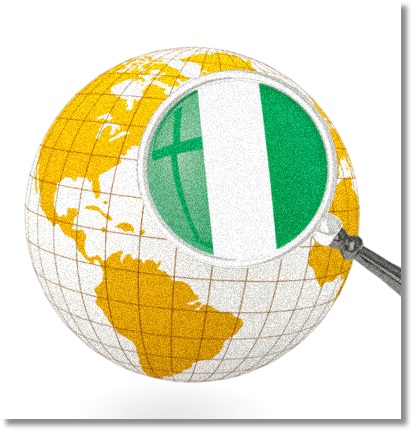Nigeria's Economic Growth: Fact or Fallacy?

 |
On January 8, 2012, she observed that Nigerians would derive clear and measurable benefits from the removal of subsidy. Some of the benefits included construction, completion and rehabilitation of rail, refineries, key federal highways, hydro stations, information technology and water projects. She further said that the Subsidy Reinvestment and Empowerment Programme SURE-P which was a fall out of the subsidy removal would provide for mass transit, public works, training in artisanship for unskilled youth and social services, healthcare. She said that the government would make available 1,600 buses to remedy the consequence of subsidy removal. May we remind Madam Minister that none of these promises have been actualized since the removal of subsidy.
Despite Nigeria’s over 80% unemployment rate and 70% poverty rate, Okonjo-Iweala says that Jonathan’s administration created 1.6 million jobs in 2013. Where are these jobs?
Okonjo-Iweala consistently maintained that Nigeria’s economy is in a good shape, a stand justified by Nigeria’s rebased Gross Domestic Product (GDP) of about $432 billion making Nigeria the biggest economy in Africa, and the hosting of World Economic Forum in Nigeria. However, shortly after the widely celebrated rebased and biggest economy in Africa together with the hosting of the World Economic Forum, there came a fall in oil price. Less than a month to the fall in oil price, the self-acclaimed largest economy in Africa is in for it. The economy has gone bad. Both the federal and state government cannot pay salaries. Our currency is devalued.
The federal government through the Minister of Finance and the Co-ordinating Minister for the Economy, Dr Ngozi Okonjo-Iweala, has announced approaches to tackle the economic challenge facing the biggest economy in Africa. Some of the approaches include: Reduction in budget benchmark, Special tax on luxury goods, $2bn withdrawal from ECA, Reject calls to print more Naira and Diversify the economy. We can only diversify with mechanized agriculture, sophisticated technology and competitive industrialization. We cannot run solely on an import dependent economy and expect stable currency rates.
Regarding our power generation; we had 4,500 megawatts (MW) daily in 2007 when we had no coordinating Minister. With a Coordinating Minister, we are struggling to have 3000 megawatts (MW) daily. In 2007, our foreign reserve was $47 billion. At the moment, we have below $45 billion. The Excess Crude Account in 2007 was $24 billion; today, we are left with about $7 billion. Some Nigerians including the state governors argue that the account is empty. In 2007, we had zero % foreign debts; at present we have over $9 billion debt and we continue to borrow. What exactly is being coordinated?
The Coordinating Minister is quick to point out that Nigeria’s economy is growing at a rate of 7%. Is the growth that comes with gross inequality and exclusion desirable, or sustainable? Are the socioeconomic disparities perpetrated by the neo-liberal model a necessary price we have to pay for her ignorance of measuring how well Nigeria’s economy is doing?
I forgive Okonjo Iweala for not realizing that to be the largest economy in Africa, Nigeria must be a developmental state that acts proactively to transform the economy and the state; direct its affairs, build strong institutions, create a space for civil society organizations and build the capacity of its citizens to engage governance. Huge investments have to be made on education and health, inclusive growth, and employment creation. This will not be achieved by rebasing our GDP but through policies and development models that turn our 170 million people into assets.
One way we can begin to redefine our path as the biggest economy in Africa is to have industrialization as an integral part of our development planning process. Without industrialization, we are not going to build an economy that will create opportunities and end poverty. Apparently, all countries that have reduced poverty did so because their economies grew out of practical strategies that created sustainable jobs and provided decent incomes based on industrial growth. Our model which bases on the intensification of our past colonial way of commodity export is not sustainable for our growth and development.
On whether we are the largest economy in Africa, paid bureaucrats, academics and government agents promptly make reference to our population, GDP growth and our recent rebased GDP to enlarge their illusion of our greatness which they have propagated and promoted without any result to show. Our lack of firm socio-economic substructure, a functional industrial foundation, and a stable self-regulatory policy further exposes the illusion and lack of understanding of our present reality.
I am particularly worried that in spite of Nigeria’s high poverty rate, youth bulge, unemployment, insecurity, mega corruption, import dependent economy, poor education, inadequate housing and leadership failure, some quarters believe that Nigeria is Africa’s largest economy.
By Audu Liberty Oseni.
